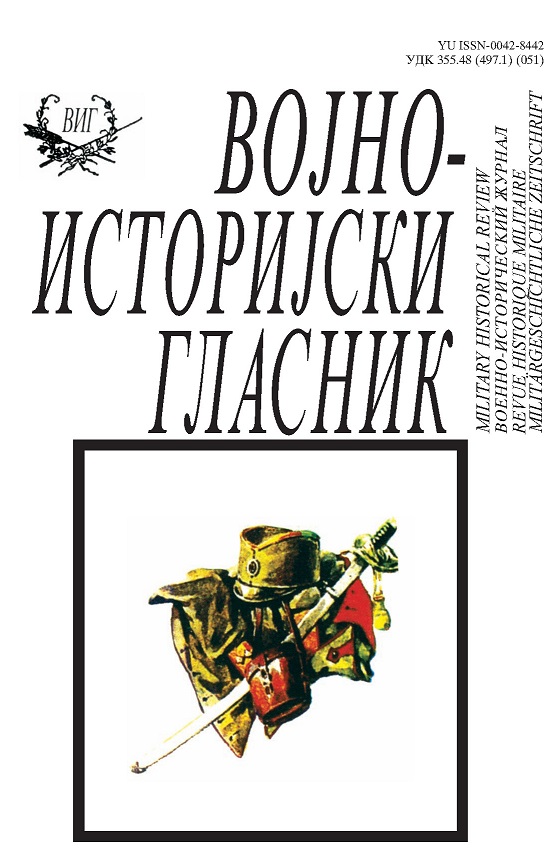Гушење топличког устанка: ВМРО на челу репресије
Suppressing Toplica Uprising: VMRO as Leading Force of Repression
Author(s): Milovan PisarriSubject(s): Military history, Political history, International relations/trade, Pre-WW I & WW I (1900 -1919), Peace and Conflict Studies
Published by: Institut za strategijska istraživanja
Keywords: Toplica uprising; Moravian Military-Inspection Authority; VMRO; Alexander Protogerov; Petar Drvingov; Colonel Tasev; 11th Macedonian Division; Committees;
Summary/Abstract: General Protogerov and Colonel Drvingov are characters whose activities in the World War I in the Balkans can be viewed from different perspectives. In the political sense, they truly mirrored the evolution of VMRO from 1912 to 1918. By following their efforts – first in organizing Macedonian-Odrin Regiment, then in 11th Macedonian Division, and at the end in eastern Macedonia and the Morava Region, where they always played the key roles, we can see the changes of VMRO itself. From a semi-underground organization it evolved into an important factor of the Bulgarian nationalistic policy. It turned into an organized army with strong territorial links and began functioning as a kind of autonomous authorities within the Bulgarian state. Its power grew so strong that in 1915 the government in Sophia was being worried about potential dangers posed by this organization. However, 1917 was a great turning point: VMRO became the means used by the Bulgarian government to gain control over the internal situation in the Morava Region, Macedonia, Thrace, and, at the end, in Bulgaria itself. In 1918, Protogerov was leading the forces set to quell the rebellion of Bulgarian soldiers against the government in Sophia. In the military sense, it is interesting to follow the process of VMRO institutionalization. Its Komita companies were incorporated into the regular army: first 11th Macedonian Division, and later other units, for example „Mountain Bands“. The fact that these companies joined the Bulgarian Army marked a significant change in the way they were conducting war and made strategic decisions. At the end, the part of these two characters in crimes against and suffering of innocent civilian population should not be forgotten. Their decisions and methods caused death of dozens of thousand people, destruction of property, looting and other misdeeds committed during the World War I in the part of the Kingdom of Serbia under Bulgarian occupation. Unfortunately, due to negligence of historical science, the picture we have about these events has remained vague for almost a century. We hope that this paper has at least partially contributed to shedding light on it.
Journal: Vojnoistorijski glasnik
- Issue Year: 2011
- Issue No: 2
- Page Range: 28-49
- Page Count: 22
- Language: Serbian

